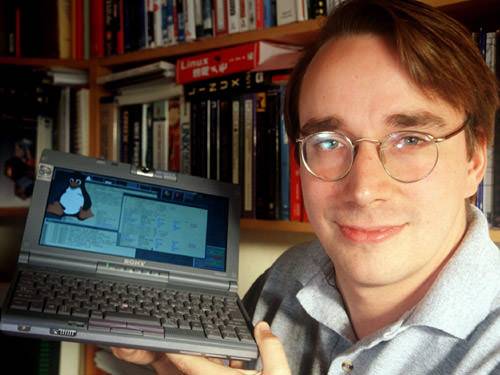
Open source is not for the faint of heart. It’s easy to assume that “open source community” translates to “hippie commune of peace-loving hackers.” In practice, open source is often anything but.
Just ask systemd developer Lennart Poettering, who describes the Linux community as “not a friendly place to be in” (and that’s putting it mildly). Open source community mailing lists are rife with strong language and even stronger opinions, some of which have even descended into death threats—though that’s an exception, not the rule. Fortunately.
See also: How To Get Started In Open Source
To those within the Linux community, founder Linus Torvalds has some advice, and a quasi-apology. In a “fireside chat” with Intel’s Dirk Hohndel at LinuxCon Europe this week, Torvalds insisted that “to become a kernel developer, you need to enjoy a certain amount of pain,” but also acknowledged a “metric s—load” of mistakes he wishes he could fix.
Linux Is One Big (Un)Happy Family
Systemd hasn’t been particularly well-received by some in the Linux community, including Torvalds. While Torvalds doesn’t have “big problems” with systemd, he faults its developers for being “much too cavalier about bugs and compatibility,” and further “think[s] some of the design details are insane.”
But these are “details,” he says, not “big issues.”
Others, however, haven’t been as even-handed in their criticism, leading Poettering to complain:
If you are a newcomer to Linux, either grow a really thick skin. Or run away, it’s not a friendly place to be in. It is sad that it is that way, but it certainly is.
While Poettering’s immediate complaints may stem from his treatment over systemd, he points to a much bigger problem within open source communities, generally, and calls out Torvalds, specifically:
By many [Torvalds] is a considered a role model, but he is quite a bad one. If he posts words like “[specific folks] …should be retroactively aborted. Who the f— does idiotic things like that? How did they not die as babies, considering that they were likely too stupid to find a tit to suck on?” (google for it), than that’s certainly bad. But what I find particularly appalling is the fact that he regularly defends this, and advertises this as an efficient way to run a community.
Small wonder, then, that Poettering concludes, “Open Source is awful in many ways, and people should be aware of this.”
Linus’ Mea Culpa
Not that Torvalds is happy about this. While he suggests strong language comes naturally to a community where “technical people with strong opinions and with a strong drive to do something technically superior” clash, he’s not callous about the aftermath.
See also: Linus Torvalds’ Obscene Rant Highlights Linux’s Hardware Woes
At LinuxCon Europe, Hohndel asked Torvalds, “If you could change a single decision you’ve made in the last 23 years, what would you do differently?” Torvalds replied:
From a technical standpoint, no single decision has ever been that important. Everything can be fixed…. The problems tend to be around alienating users or developers and I’m pretty good at that. I use strong language. But again there’s not a single instance I’d like to fix. There’s a metric s—load of those.
Technology matters but is fixable. Human relationships matter more, and aren’t nearly as susceptible to quick fixes.
One problem, however, is that “On the Internet nobody can hear you being subtle,” according to Torvalds, which leads some people to forego subtleties in favor of clarity. No matter how much it hurts.
Getting Community Right
It’s something that Torvalds and, indeed, open source developers, generally, need to get better at. As Torvalds told the LinuxCon Europe crowd:
One of the most important things for Linux is having a big community that is actively testing new kernels; it’s the only way to support the absolute insane amount of different hardware we deal with.
The genius of open source is community, not technology, as I’ve written before. Anything that hurts community, then, needs to be resolved.
It turns out, as new academic research demonstrates, that we’re often not very welcoming to newbies. One researcher notes that “almost all non-returning newcomers [to an open-source project] can be attributed to not receiving a response or receiving a condescending response.”
We need to do better. Not just because people should be treated with respect, but also because, as Torvalds notes, “it’s the only way to support” an open-source project of significant size.

















